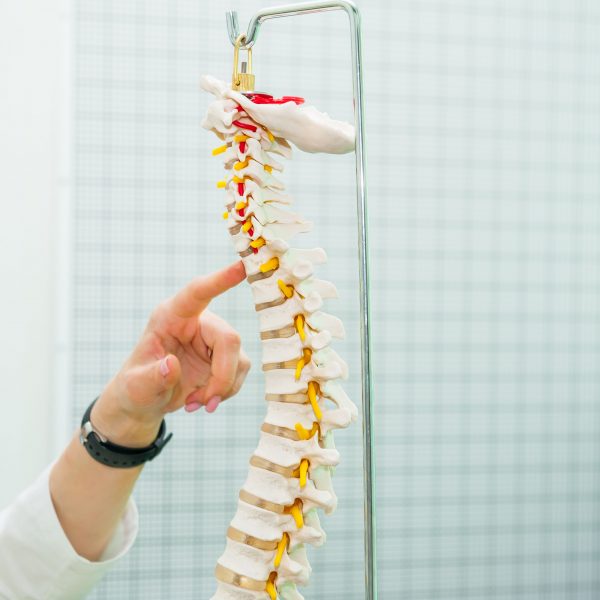• Obstructive sleep apnea (OSA) is when the airways become blocked during sleep, leading to loud snoring, interrupted breathing, and extreme fatigue.
• Risk factors for OSA include age, gender, weight, alcohol consumption, smoking, and neck circumference.
• Men are more likely than women to develop OSA due to differences in anatomy, higher likelihood of being overweight, and lifestyle choices.
• Treatment options include Continuous Positive Airway Pressure (CPAP), Oral Appliance Therapy, Surgery, Jaw Surgery, Lifestyle Changes, and Therapy.
If you are having trouble sleeping, you may have obstructive sleep apnea. This serious condition can cause extreme fatigue, snoring, and other long-term health issues. This blog post will discuss what causes obstructive sleep apnea and how it can be treated.
What is Obstructive Sleep Apnea
Obstructive sleep apnea (OSA) occurs when the airways become blocked during sleep, and breathing becomes difficult or stops entirely for short periods. The most common symptoms include:
- Loud and chronic snoring
- Interrupted breathing during sleep
- Feeling tired even after a full night’s sleep
- Waking up frequently during the night
In some cases, people may also experience daytime drowsiness, headaches, frequent urination at night, and depression. OSA can also lead to high blood pressure and a higher risk of stroke or heart attack.
Causes of Obstructive Sleep Apnea
Some people are more prone to or at risk of developing OSA than others. Risk factors that can cause OSA to include:
- Age: Those over 40 are more likely to develop OSA due to natural aging. The throat muscles weaken with age, resulting in a narrower airway. Additionally, the tongue loses muscle tone and can fall back, blocking the airway.
- Gender: Men are more likely to have OSA than women due to differences in anatomy, the higher likelihood of men being overweight, and the choices in lifestyle and habits.
- Weight: Obesity is one of the main risk factors for developing OSA. This is because fat deposits can build up around the neck, narrowing the airway and making it difficult to breathe.
- Alcohol Consumption: Alcohol relaxes the throat muscles even more, making it easier to collapse and block the airway during sleep.
- Smoking: Smoking increases inflammation in the upper airway, making it more likely for people to develop OSA.
- Neck Circumference: A large neck circumference means the distance between your Adam’s apple and your collarbone is greater, which can result in a narrower airway.
Treatment Options for OSA

Fortunately, several treatments are available for obstructive sleep apnea, depending on the severity of the condition. Some of the most common treatments include:
Continuous Positive Airway Pressure (CPAP)
CPAP is a machine that delivers air through a mask while you sleep, keeping your airways open. The air pressure helps keep the throat muscles from collapsing and blocking the airway. To use this, you must wear a mask that fits snugly over your nose, and the machine pumps air through it while you sleep. You may need to use this for the rest of your life to manage your OSA.
Oral Appliance Therapy
This involves wearing a custom-made oral appliance in the mouth while you sleep. The device gently repositions the lower jaw, preventing the tongue from falling back and blocking the airway. This is usually used as an alternative or in combination with CPAP.
Surgery
For people with more severe cases of OSA, surgery may be necessary. Procedure options include uvulopalatopharyngoplasty (UPPP), maxillomandibular advancement (MMA), and tracheostomy. Surgery should always be the last resort for treating OSA, as it can come with some risks.
Jaw Surgery
If an abnormality causes your sleep apnea in the upper jaw, then your doctor may recommend a jaw surgery procedure to correct the problem. This surgery involves reshaping and repositioning the jaw to open the airway. You will immediately notice a difference in your breathing; the results are usually permanent.
Lifestyle Changes
Making lifestyle changes can help alleviate symptoms of OSA. This includes losing weight, avoiding alcohol and smoking, and sleeping on your side instead of your back. These small changes can significantly affect how well you sleep at night. Consider changing your sleeping environment, such as making sure there is no noise or light in the room.
Therapy
Mental health issues like stress or anxiety can contribute to sleep apnea. It is important to address these underlying issues to get the best results from your OSA treatment plan. Cognitive behavioral therapy is one of the most effective treatments for this condition. It can help you learn how to manage your emotions better and reduce stress.
Obstructive sleep apnea is a serious condition that can have long-term health effects. It is important to know the risk factors to prevent this condition. If you have OSA, it is important to talk to your doctor immediately so they can start a treatment plan for you. With the right treatment and lifestyle changes, you can get a better night’s sleep and reduce your risk of health complications.






